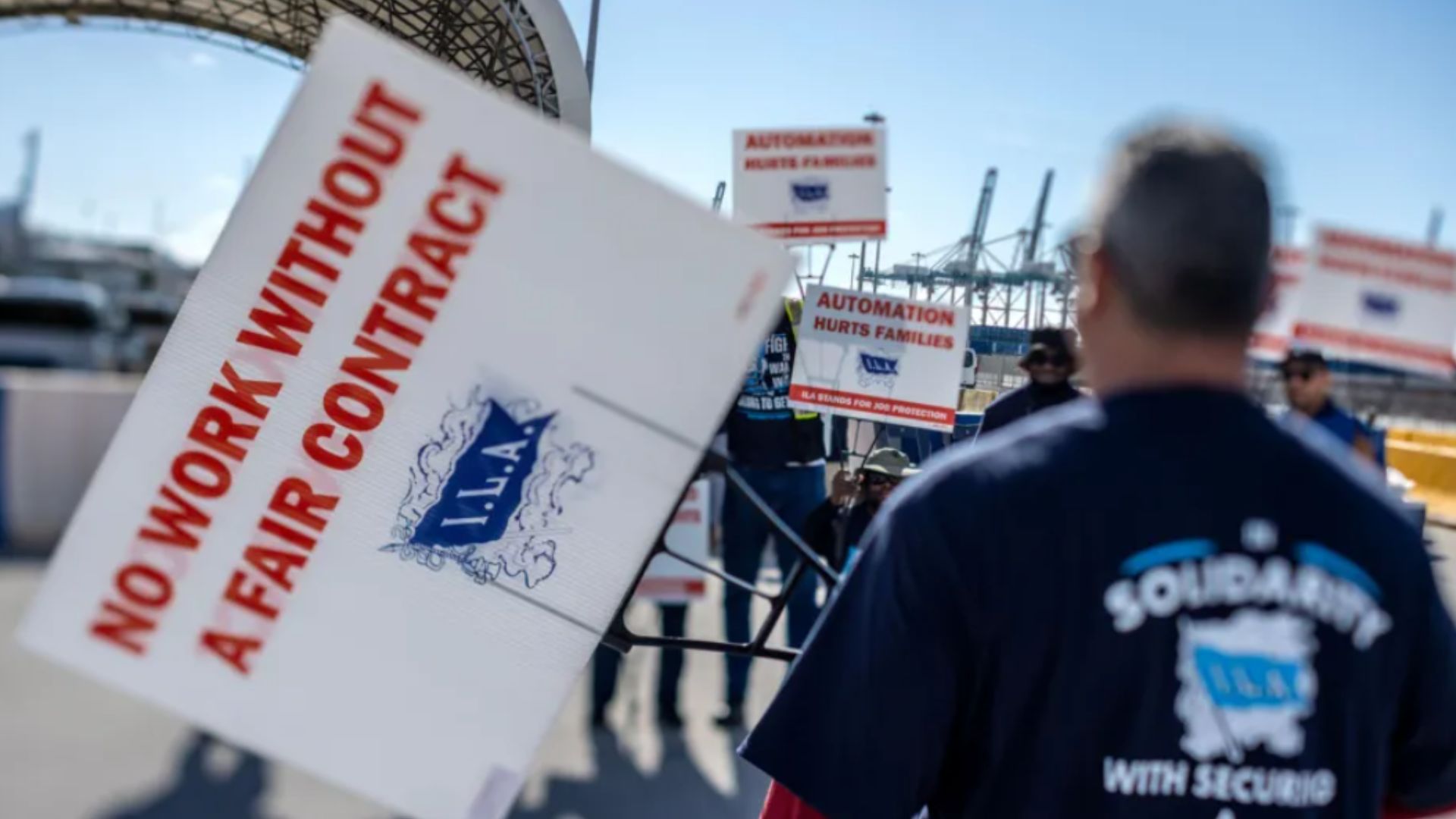Major US ports will remain closed until pay demands are met, according to the striking dockworkers union. Harold Daggett, president of the International Longshoremen’s Association (ILA), pledged a picket line in New Jersey on Tuesday as tens of thousands of dock employees on the East and Gulf coasts protested a better labor contract. “We’re going to fight for it, and we’re going to win, or this port will never open up again,” he said. “I’m not playing games here.”

Businesses are ready for a prolonged port shutdown, which may disrupt global trade and the US economy. President Joe Biden has rejected proposals from some of the country’s most prominent business groups to utilize federal power to reopen the ports for 80 days, pausing the strike to allow for more negotiations. “It’s only fair that workers, who put yourself at risk throughout the pandemic to keep ports open, see an important rise in their wages as well,” Biden told reporters. “Now is not the time for ocean carriers to refuse to negotiate a fair wage for these essential workers while raking in record profits.”
Republican presidential contender Donald Trump also supported the striking port workers. “American workers should be able to negotiate for better wages, especially since the shipping companies are mostly foreign flag vessels,” according to a press release. Talks on a new agreement were deadlocked for months before the strike. Still, the United States Maritime Alliance (USMX), representing shipping companies and port groups, said that the two sides had resumed negotiations.
Dockworkers got a base hourly rate of $20-$39 under the 2018 contract, which expired on Monday, and extra incentives such as container traffic royalties. USMX stated that its most recent offer would increase salary by roughly 50%, triple employer contributions to retirement, and improve healthcare, among other concessions.
The organization stated that the offer exceeded “every other recent union settlement” and that the current standoff was “completely unavoidable.” “We look forward to talking to the union about how we can return to the table and negotiate, which is the only way to resolve,” he said. However, Mr Daggett of the ILA stated that ” nothing ” has brought the union and companies together to terminate the strike. He stated that he was willing to keep the ports closed unless corporations agreed to increase hourly wages by $5 for each year of the contract. According to federal records, the union has approximately 47,000 active members. It is also seeking protection against automation.
“I’m going to fight for it because those greedy companies are making billions of dollars and don’t want to share,” he said. If the shutdown continues, it is projected to raise costs and cause shortages in the United States, with shipping delays and other consequences spreading worldwide. “We are seeing now that ships are starting to anchor outside of the ports waiting to see what is going to happen,” said Anne-Sophie Fribourg, a vice president at freight forwarding company Zencargo, which handles shipments for exporters and importers. “The disruption will be massive if the strike lasts,” she told reporters.
Hamid Moghadam, CEO of Prologis, one of the world’s largest warehouse businesses and a landlord to corporations such as Amazon, stated that while the strike was not unexpected, it will “nonetheless” harm the economy. “We get concerned when we have special order products for people’s weddings that may be stuck on a ship that cannot reach us. “That’s difficult to explain to a potential bride,” he remarked. He stated that around 75% of his merchandise is transported through East Coast ports. He explained that while he expected his business to be operational by the end of the year, he was concerned about the broader impact. “I think the consequences for the economy could be devastating if this continues,” he said, adding that he wanted the president to step in.


